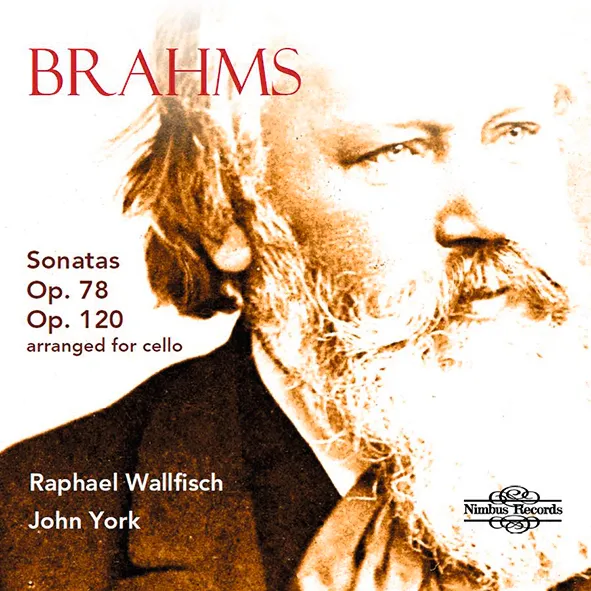
Brahms Sonata in E flat major, Op. 120 No. 1; Sonata in G, Op. 78; Sonata in F minor, Op. 120 No. 2 Raphael Wallfisch (cello), John York (piano) Nimbus Records NI 5974 72.34 mins
Seriously underrated pianist John York makes excellent observations on how he and Raphael Wallfisch worked on these transcriptions, but I’d challenge his hope that ‘listeners can agree that the two clarinet sonatas and the G major Violin Sonata lose nothing in these “translations”.’ Of course they do, since they are no longer being heard on the instruments for which Brahms conceived them. Whether there are also gains is the real question, and to that these interpretations evince an emphatic ‘yes’.
I might question a couple of phrases divided up between pianist and instrumentalist given the cello’s low register in the first movement of the E flat Sonata, Op. 120 No. 2, but could only delight in their third-movement exchanges; York and Wallfisch have all the deep knowledge and intuition of experience these late works need, reining in for frequent introspection. The F minor work’s gracious waltz somehow doesn’t work with cello, but the outer movements roll with a different radiance to that of clarinet.
Most surprising is the success of the First Violin Sonata, transposed from G to D which, York argues, may even be Brahms’s own work; at this pitch the cello in higher register sounds more like a viola, and there Wallfisch’s singerly qualities are most pronounced. It was such a delight, too, having been previously listening to a Somm recording where cello and piano sound is problematic, to find the engineering here allowing ideal engagement with both instruments. On its own terms, then, a winner if ultimately no substitute for the originals. David Nice